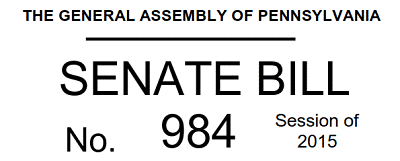 In Pennsylvania, Uber, Lyft and other ride-hailing drivers must tell their insurance companies that they engage in commercial activity, according to a bill expected to be signed into law soon.
In Pennsylvania, Uber, Lyft and other ride-hailing drivers must tell their insurance companies that they engage in commercial activity, according to a bill expected to be signed into law soon.
With Uber, it’s personal
Of course, all drivers should have auto insurance, whether or not it’s required by law. It’s the financially responsible thing to do. The important thing is to have the right kind of insurance. Drivers working for transportation network companies (TNCs), like Uber, must carry personal automobile insurance. It’s a requirement to be on the network.
The problem: this insurance is a personal policy, but when the driver first turns on the ride-hailing app, they perform a commercial service. Insurance companies often refer to commercial work, like ride-hailing or pizza delivery, as “work for hire.”
Because commercial drivers cover more miles, they represent a higher risk for the insurers. They pay more for their insurance coverage.
Legislation helps fill a gap in ‘rideshare’ insurance.
So Uber and other ride-hailing companies require drivers to carry personal insurance coverage in order to perform a commercial activity. TNCs maintain a temporary, commercial, insurance policy only after the driver accepts a ride. That policy continues or is replaced by a more robust policy when the rider enters the car. It continues until the passenger exits the vehicle.
In the event of an accident, the TNC compels the driver to claim it against their personal policy. As soon as that insurance company finds out the driver was engaged in commercial activity, they deny the claim and cancel the policy.
Uber’s insurance then kicks in to cover the accident.
Recently, the Pennsylvania Senate passed Bill 984 regulating the ride-hailing industry. It very clearly states that drivers must inform their insurance company of any work for hire.
The exact wording:
57A07. Insurance Requirements.
General rule.–A transportation network company driver or transportation network company on the driver’s behalf shall maintain primary automobile insurance that recognizes that the driver is a transportation network company driver or otherwise uses a vehicle to transport passengers for compensation.
Pennsylvania law provides necessary regulation
Although the bill allows TNCs to carry a policy on behalf of their drivers as primary coverage, no TNC uses this model. It’s been a convenient oversight for the TNCs. Uber, Lyft and other ‘ridesharing’ companies don’t provide primary commercial insurance for their drivers. Instead, they allow their drivers to use personal automobile insurance policies at their own risk.
Many have cheered Uber and other companies as ‘disruptors’ of the heavily regulated taxi industry. Interestingly, it took more governmental regulation to fill this very important gap in insurance coverage.
Several national and regional insurance companies offer ‘rideshare’ policies.
If you’re a driver, do you have rideshare specific language? Let me know your thoughts.
